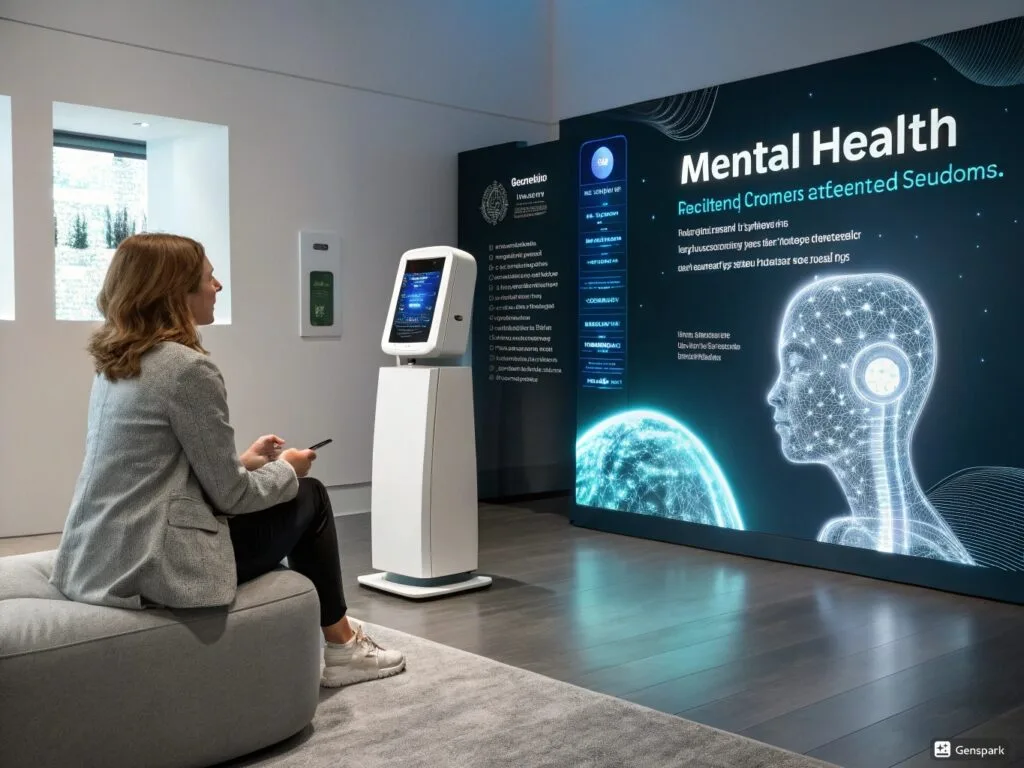
Mental health care is evolving rapidly, and AI-powered mental health solutions are at the forefront of this transformation. With the rise of artificial intelligence, individuals can now access mental health support in more personalized, affordable, and effective ways. From AI chatbots providing 24/7 therapy to predictive analytics detecting early signs of mental health conditions, the future of AI-driven mental health care looks promising.
As we step into 2025, AI is expected to revolutionize mental health care in unprecedented ways. These technologies are breaking barriers by making therapy more accessible, reducing stigma, and improving diagnostic accuracy. Whether you’re a mental health professional, someone seeking self-help solutions, or simply interested in AI’s role in well-being, this article explores seven cutting-edge AI-powered mental health solutions set to shape the future.
Let’s dive into these game-changing innovations! 🚀
1. AI-Powered Mental Health Chatbots 🗣️🤖
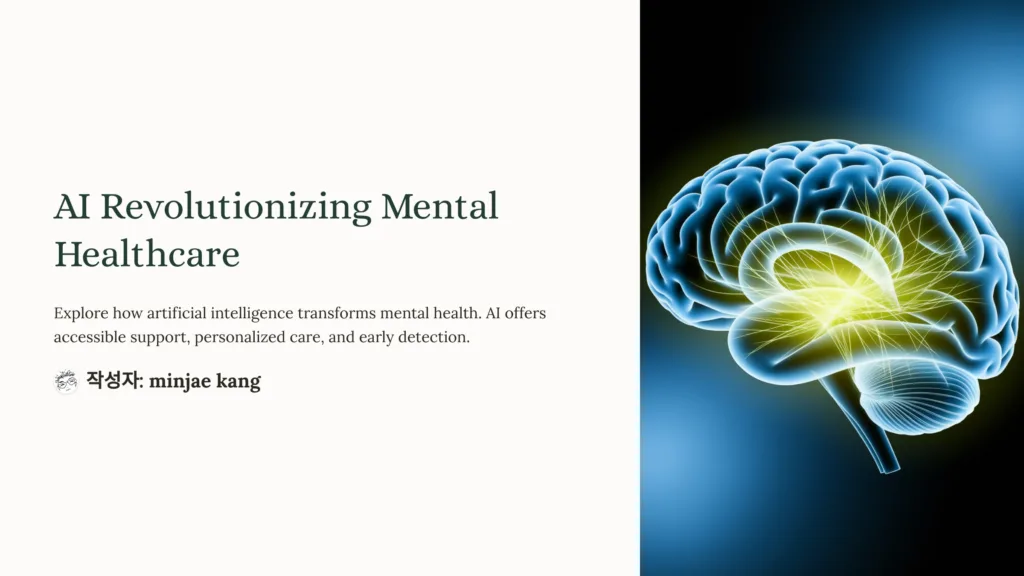
One of the most popular AI-powered mental health solutions is chatbots. These intelligent conversational agents provide round-the-clock mental health support, offering guidance, emotional support, and even cognitive behavioral therapy (CBT) exercises.
🔹 How AI Chatbots Help
- 24/7 Availability – No need to wait for an appointment.
- Affordable Therapy – Provides free or low-cost support.
- Anonymity & Privacy – Encourages open communication without stigma.
Popular AI mental health chatbots include Woebot, Wysa, and Replika, which use NLP (Natural Language Processing) to engage users in meaningful conversations. While these bots don’t replace professional therapists, they serve as valuable tools for managing stress, anxiety, and depression.
🔗 Learn more about AI chatbots for mental health: Woebot
2. AI-Based Mood Tracking & Monitoring 📊📉
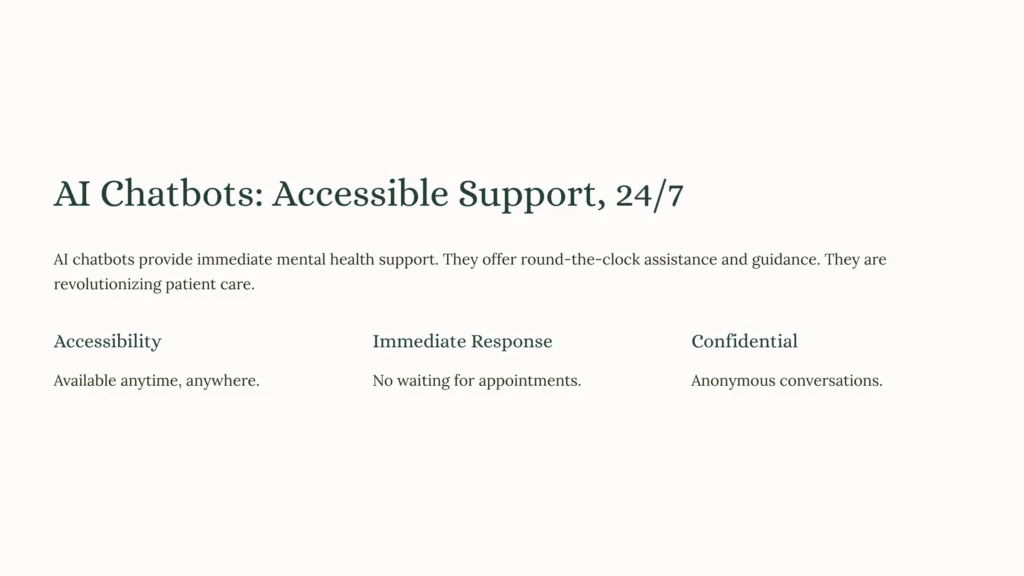
AI-powered mood tracking tools are transforming the way people understand their emotional health. These apps use AI to analyze patterns in speech, facial expressions, and even smartphone usage to detect mood shifts.
🔹 Key Features of AI Mood Trackers
- Voice & Speech Analysis – Detects tone changes that indicate mood shifts.
- Facial Recognition – Uses AI to assess emotions based on facial expressions.
- Behavioral Analysis – Tracks changes in sleep, social interactions, and app usage.
Apps like Mindstrong and Moodpath utilize AI to provide insights into emotional well-being, helping users recognize early signs of anxiety or depression. These tools empower individuals to take proactive steps in managing their mental health.
🔗 Explore AI-based mood tracking tools: Mindstrong
3. AI-Driven Personalized Therapy Plans 📋💡
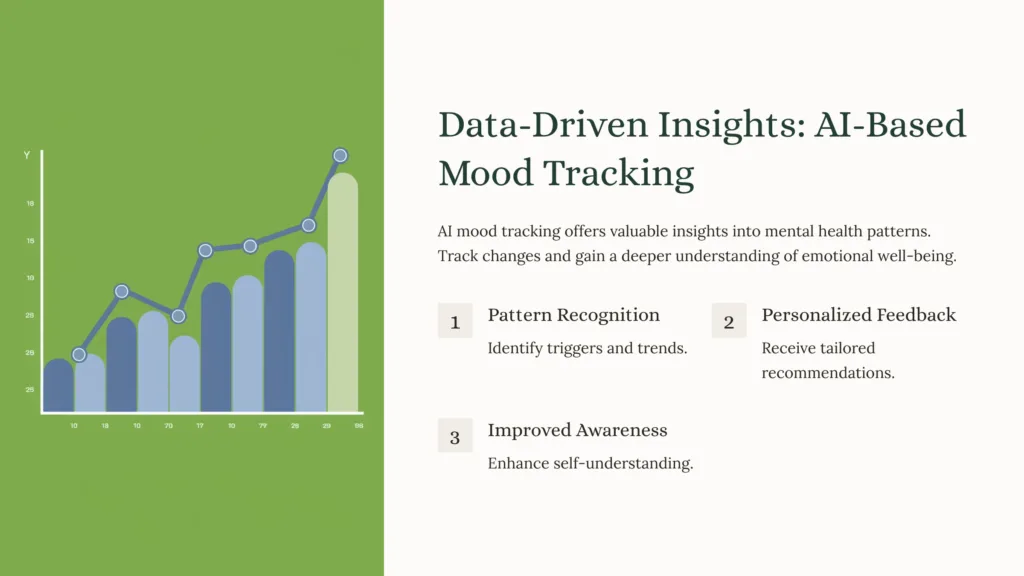
AI is revolutionizing mental health care by personalizing therapy plans based on an individual’s unique psychological profile. Using machine learning, AI can recommend tailored exercises, self-help strategies, and even therapist suggestions.
🔹 How AI Personalizes Therapy
- Analyzes User Data – Tracks mental health history, habits, and progress.
- Suggests Custom Strategies – Offers personalized coping techniques.
- Optimizes Treatment Plans – Adjusts recommendations based on real-time feedback.
Companies like Ginger and BetterHelp integrate AI with traditional therapy, enhancing the effectiveness of mental health care. These AI-enhanced solutions make therapy more accessible and customized than ever before.
🔗 Discover AI-driven personalized therapy: Ginger
4. AI for Early Detection & Diagnosis 🔍🧠
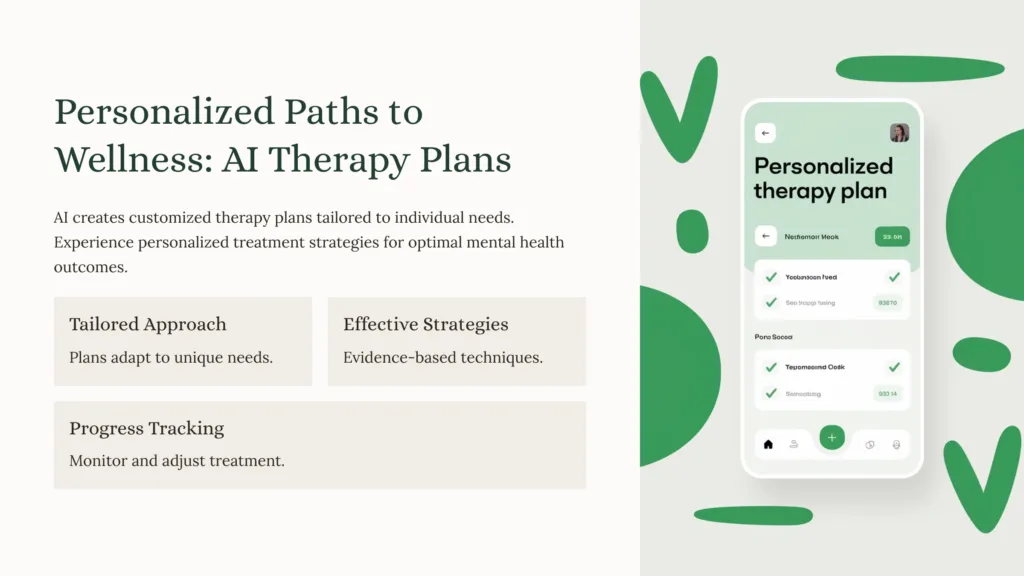
One of the most promising applications of AI-powered mental health solutions is early detection of mental health conditions. AI algorithms analyze behavioral data, social media activity, and speech patterns to identify warning signs of depression, anxiety, and even schizophrenia.
🔹 Benefits of AI in Mental Health Diagnosis
- Faster Detection – Identifies symptoms before they worsen.
- Objective Analysis – Reduces human bias in diagnosis.
- Data-Driven Insights – Helps clinicians make informed decisions.
AI-powered platforms like Mindstrong Health and Cogito are paving the way for early intervention strategies, ultimately preventing severe mental health crises.
🔗 Learn about AI in mental health diagnosis: Cogito
5. AI in Virtual Reality (VR) Therapy 🌍🕶️

AI and Virtual Reality (VR) are merging to create immersive mental health therapies. VR exposure therapy, combined with AI, helps individuals overcome phobias, PTSD, and anxiety disorders by simulating real-life scenarios.
🔹 How AI-Enhanced VR Therapy Works
- Simulates Safe Environments – Helps patients face fears gradually.
- Tracks Physiological Responses – Monitors heart rate, stress levels, and eye movements.
- Personalized Therapy – Adjusts difficulty levels based on real-time feedback.
AI-driven VR therapy is already being used in PTSD treatment for veterans and individuals with social anxiety. Platforms like OxfordVR and Limbix are leading this innovation.
🔗 Read more about AI-powered VR therapy: OxfordVR
6. AI-Powered Suicide Prevention Tools 🚨❤️

AI is playing a critical role in suicide prevention by analyzing digital footprints to detect distress signals. Social media platforms, crisis hotlines, and mental health apps use AI to identify users at risk of self-harm or suicidal ideation.
🔹 How AI Supports Suicide Prevention
- Analyzes Social Media Activity – Detects distress patterns in posts and messages.
- Identifies High-Risk Individuals – Alerts crisis responders for timely intervention.
- Provides Immediate Support – Connects users to mental health resources.
Facebook and Google are already using AI to detect suicidal behavior, offering resources and support to those in crisis.
🔗 Explore AI’s role in suicide prevention: Crisis Text Line
7. AI-Powered Meditation & Mindfulness Apps 🧘♀️📱
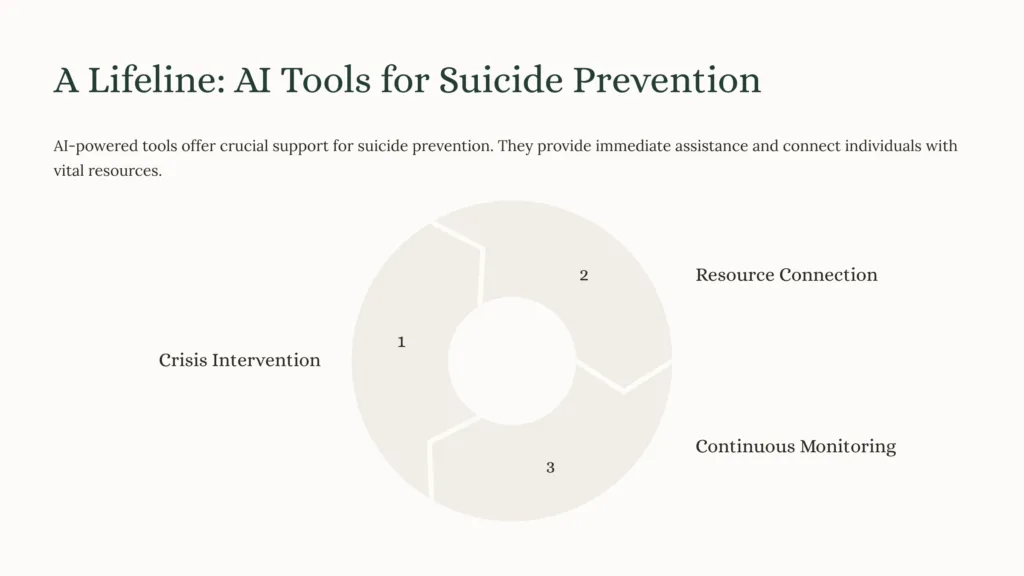
AI is also making mindfulness and meditation more accessible. AI-driven apps offer guided meditation sessions, breathing exercises, and real-time stress analysis.
🔹 AI-Powered Mindfulness Benefits
- Customized Meditation Plans – Adjusts sessions based on mood and stress levels.
- Voice & Biofeedback Analysis – Uses AI to detect stress and recommend breathing techniques.
- Real-Time Guidance – Helps users stay consistent with mindfulness practices.
Apps like Calm, Headspace, and Aura use AI to create personalized wellness experiences.
🔗 Discover AI-powered mindfulness apps: Headspace
Final Thoughts: The Future of AI-Powered Mental Health Solutions 🚀
The integration of AI in mental health care is a game-changer, making therapy more accessible, affordable, and efficient. From chatbots offering 24/7 support to AI-driven mood tracking and VR therapy, these technologies are set to redefine how mental health is approached in 2025 and beyond.
As AI continues to evolve, it holds the potential to bridge the mental health treatment gap, ensuring that more people receive timely and effective support. Whether you’re seeking mental wellness tools or professional guidance, AI-powered mental health solutions are here to help.
Ready to explore the future of AI in mental health? Try out one of these innovations today!
🔗 Artificial intelligence in mental health care: Mental Health America
답글 남기기